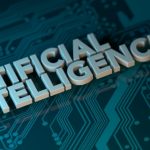PLOS Digit Health has recently published a systematic review highlighting the significant gap between the rapid growth of artificial intelligence (AI) research in medicine and its practical application in clinical settings. The study emphasizes the necessity for a standardized framework to facilitate the successful procurement, implementation, monitoring, and evaluation of AI tools. Researchers extracted data from various reputable databases, showcasing a thorough approach that aims to bridge the gap in current healthcare AI utilization. The review underscores the critical need for increased transparency and validation within the clinical workflow to maximize the benefits of AI in healthcare.
Frameworks and Implementation
A comprehensive literature search adhering to PRISMA guidelines was conducted on databases including MEDLINE, Wiley Cochrane, Scopus, and EBSCO. The researchers aimed to identify articles that recommend best practices, frameworks, or guidelines for the procurement, integration, monitoring, and evaluation of AI tools in clinical practice. The search yielded 17,537 unique articles, from which 47 full-text articles were evaluated, and 25 were included in the review. The extracted data were mapped onto the Donabedian Plan, Do, Study, Act (PDSA) cycle domains to provide a structured approach to AI tool implementation.
The review found that the most common domain was “Plan,” represented in 84% of the articles, followed by “Study” at 60%, “Do” at 52%, and “Act” at 24%. The themes extracted from the included articles focused on transparency, seamless integration into existing clinical workflows, validation using predefined performance indicators, and iterative improvements to AI algorithms. Notably, only a minimal percentage of authors were from low-income and lower-middle-income countries, highlighting a disparity in contributions from diverse economic backgrounds.
Challenges and Opportunities
Healthcare professionals reported significant challenges in implementing AI tools within clinical settings. Among the primary obstacles were low levels of evidence for integration in the “Do” and “Act” domains of the PDSA cycle. The review calls for increased data sharing and knowledge translation to support common objectives and achieve substantial clinical benefits.
Comparing this information with earlier reports, it is evident that previous studies have also highlighted the slow adoption of AI in clinical practice despite its rapid research advancements. Earlier articles pointed out the lack of standardized protocols and the necessity for extensive validation to ensure AI tools’ safety and effectiveness. Furthermore, previous analyses emphasized the importance of interdisciplinary collaboration and continuous education for healthcare professionals to adapt to AI technologies effectively.
Recent studies have further reiterated the challenges of integrating AI into existing clinical workflows. While earlier research focused on the potential benefits and theoretical applications of AI, current studies are increasingly concerned with practical implementation issues. These include aligning AI tools with regulatory standards, addressing ethical concerns, and ensuring patient data privacy. The current review by PLOS Digit Health aligns with these ongoing concerns, underscoring the need for robust frameworks and comprehensive evaluations.
Moving forward, it is crucial to address the disparities in contributions from low-income and lower-middle-income countries. By fostering a more inclusive approach, the global healthcare community can benefit from diverse perspectives and innovative solutions. Healthcare systems should prioritize the development of standardized frameworks that facilitate the seamless integration of AI tools. Continuous education and training for healthcare professionals are essential to adapt to rapidly evolving AI technologies. Ultimately, increased collaboration and data sharing will be pivotal in overcoming current challenges and maximizing the clinical benefits of AI.










